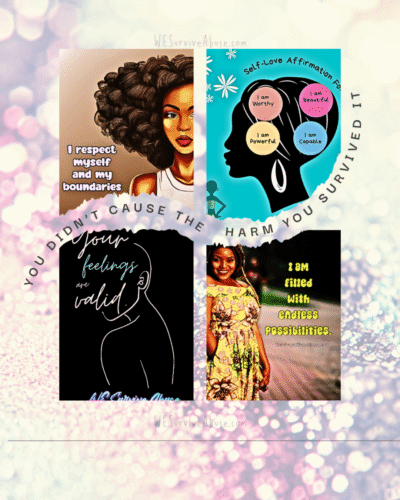Perpetrator fragility is a concept used to describe how individuals—most often abusers or those in power—respond with defensiveness, victim-playing, o
 Perpetrator fragility is a concept used to describe how individuals—most often abusers or those in power—respond with defensiveness, victim-playing, or aggression when they are confronted about their harmful behavior. Instead of taking responsibility, they center their own feelings and discomfort, making the act of being held accountable seem like an act of harm against them.
Perpetrator fragility is a concept used to describe how individuals—most often abusers or those in power—respond with defensiveness, victim-playing, or aggression when they are confronted about their harmful behavior. Instead of taking responsibility, they center their own feelings and discomfort, making the act of being held accountable seem like an act of harm against them.
🔍 Characteristics of Perpetrator Fragility:
Victim Reversal:
The person who caused harm claims they’re the victim because you spoke up or set a boundary.Emotional Manipulation:
They react with exaggerated hurt, sadness, or anger, making the focus shift to comforting them instead of dealing with the harm they caused.Silencing Tactics:
They accuse you of “causing drama,” “making things worse,” or “ruining their life” simply for telling the truth.Avoidance of Accountability:
Instead of saying, “I need to do better,” they say, “You’re trying to destroy me.”Recasting Control as Caring:
They claim their controlling or abusive behavior was actually love or protection—making your refusal of it seem cold or cruel.They twist the narrative so that their aggression looks like concern.
Their surveillance looks like safety.
Their domination looks like devotion.And when women reject it—when they say no to being watched, limited, or silenced—
those men and their defenders often respond with a chorus of guilt and gaslight:🗣 “See, women want you to protect them, but they don’t want to listen.”
🗣 “How are we supposed to keep you safe if you won’t fall in line?”
🗣 “We’re just trying to protect you—from them—but now you’re making us the enemy?”What they really mean is:
“Obey, or I’ll withhold protection. Maybe even become the danger myself.”
Let’s be clear:
That is not protection. That is coercion.
It’s the same tactic used by abusers, gangs, and authoritarian systems:
They create or exaggerate a threat.
Then offer “safety” as long as you give up your freedom, voice, and autonomy.
If you refuse, they claim you are ungrateful, reckless, or “asking for it.”
This is not love.
This is not masculinity.
This is not leadership.
This is manipulative power disguised as care.You don’t owe your silence or obedience just to be “worthy” of protection.
You deserve safety because you are human.
Period.If a man’s protection requires your submission, it’s not protection—it’s a threat with a ribbon on it.
🧠 Where It Comes From:
Perpetrator fragility is tied to entitlement and social conditioning. Many men—especially in patriarchal cultures—are conditioned to believe that:
They are owed forgiveness, silence, and loyalty.
Criticism or exposure is an act of betrayal.
A woman’s boundaries are a threat to their power.
It’s also deeply racialized when it intersects with the experiences of Black women. Scholars like Dr. Beth Richie and Dr. Carolyn West explore how Black women are often coerced into silence by the fear of “betraying the race” if they speak up about a Black man’s violence—while he plays the role of victim in the eyes of the community or the state.
🛑 Why It’s Harmful:
It re-centers the abuser in a conversation that should be about accountability and healing.
It discourages Survivors from speaking up, fearing they’ll be blamed for “ruining” someone.
It allows cycles of abuse to continue, often with community support or apathy.
You are not unkind for telling the truth. You are not the villain in his story just because you stepped out of the role he wrote for you. His fragility is not your burden. His shame is not your cross to carry. You were not born to cushion the blow of his consequences. You were born to rise, to speak, to heal, to live. Let him call it betrayal—you call it freedom.
And when the world tries to guilt you back into silence, remember: you didn’t cause the harm—you survived it. And that is sacred.
